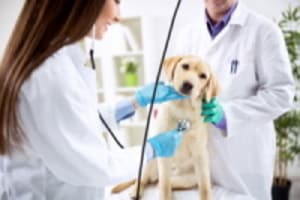 Just under 50% of cat owners and about 19% of dog owners skip their routine vet visits every year. While visiting the vet yearly might not seem important for the average pet, it’s not something you should skip if you have the means.
Just under 50% of cat owners and about 19% of dog owners skip their routine vet visits every year. While visiting the vet yearly might not seem important for the average pet, it’s not something you should skip if you have the means.
If you’re getting ready for an overdue vet appointment, you want to get the most out of it, right? You need to come prepared with the right questions.
We’re here to talk about a few questions you should ask your veterinarian in Charleston, SC. Read on to learn more.
1. What Type of Food Should I Be Providing?
This is a great question to ask your veterinarian in Charleston, SC. It’s also a question that almost all vets will have several answers to.
There are different “levels” of pet food as far as quality goes. Some foods are mostly fillers while others are nutrient-dense. Most land somewhere in-between.
There are also options for specific lifestyles and health issues. For example, there’s food specifically for indoor cats that can help them maintain a healthy weight when they don’t have the opportunity to play outside.
There’s wet food, dry food, and even raw food.
It’s likely that your vet will recommend a specific brand of pet food, but if you let them know your budget, they may also make recommendations at various price points. Your vet wants your pet to be as healthy as possible, so they won’t withhold helpful information.
2. Is My Pet’s Weight Healthy?
Even if your pet seems to be a healthy weight, it never hurts to ask! Most of the time, the vet will mention if your pet is overweight, but they may not say anything if they’re underweight or on the edge of either overweight or underweight.
The vet may also forget, especially if there are other tasks to take care of.
Pet vary wildly in sizes, even within the same breed. Your vet can give you an idea of what a healthy weight would be for your pet and give you advice on how to get them there (or keep them there).
If your pet isn’t a healthy weight, don’t feel guilty. What matters is that you’re working to change it.
3. Does My Pet Need a Dental Cleaning?
Many people don’t realize that pets need dental care too!
In the wild, animals keep their teeth strong and healthy through their diets. While you may feed your pets the best food, their teeth may still suffer.
Poor oral health can lead to numerous other health problems for your furry friend. They may have trouble eating or get some sort of infection. They may even lose their teeth!
Schedule some dental work for your pet at your local vet clinic in Charleston, NC.
4. Should My Pet Get Any New Shots?
When was the last time you scheduled a vaccination appointment for your pet? It’s easy to lose track of time, especially if your pet is always in safe situations. Owners of indoor cats in particular often skip vaccinations for longer than they should.
Vaccinations are still beneficial, even if your pet never leaves your sight. You never know when your pet could escape. If your pet spends time outdoors, it could come in contact with an infected animal.
Talk to your vet about your pet’s vaccination history and they’ll be able to make recommendations and schedule a vaccination appointment for you if necessary.
5. Is My Pet’s Behavior Normal?
Is your pet doing something that you’re not sure is normal? Now is a great time to ask your vet about it!
Pets all have unique behaviors and personalities, and what’s “normal” for one pet won’t be “normal” for another. That said, if something is extremely out of the ordinary even for your furry companion, a vet might be able to provide some insight.
Is your pet suddenly aggressive or fearful? Has your pet been clingier than normal? Maybe your pet has been more vocal.
These things can all be normal, but they could also be signs that something else is amiss. Talking to a vet will, at the very least, help you get peace of mind.
6. Why Is My Pet Showing This Symptom?
What if it isn’t just a unique behavior, but an actual symptom of something wrong? Make sure you ask your vet about it!
Some symptoms aren’t actually problematic, or at least not indicative of a large problem. For example, a pet that’s sneezing may just be affected by dust (or dusty cat litter). A pet that’s throwing up could be eating too fast.
Unfortunately, even small symptoms can also be signs that there’s a larger problem beneath the surface. It’s always better to be safe rather than sorry when it comes to your pet’s care.
7. What Can I Do to Give My Pet a Better Life?
You want to give your pet the best life possible, and your vet wants to help you. Ask your vet about what you can do to help your pet thrive.
This will, of course, include routine vet visits, but your vet may also suggest specific activities, grooming care, and more. They may even recommend environmental changes (such as “catifying” your home for a restless cat).
It’s Time to Visit Your Veterinarian in Charleston, SC
Make sure you have all of your questions written down for your next visit with your local veterinarian in Charleston, SC! This will help you make the most out of your vet visit and help you keep your pet healthy and happy at home.
If you’re ready to make an appointment with your furry friend, we want to meet you! Contact Hampton Park Veterinary to schedule an appointment for a check-up, pet dermatology, veterinary surgery, or any other type of pet care that your pet needs.

